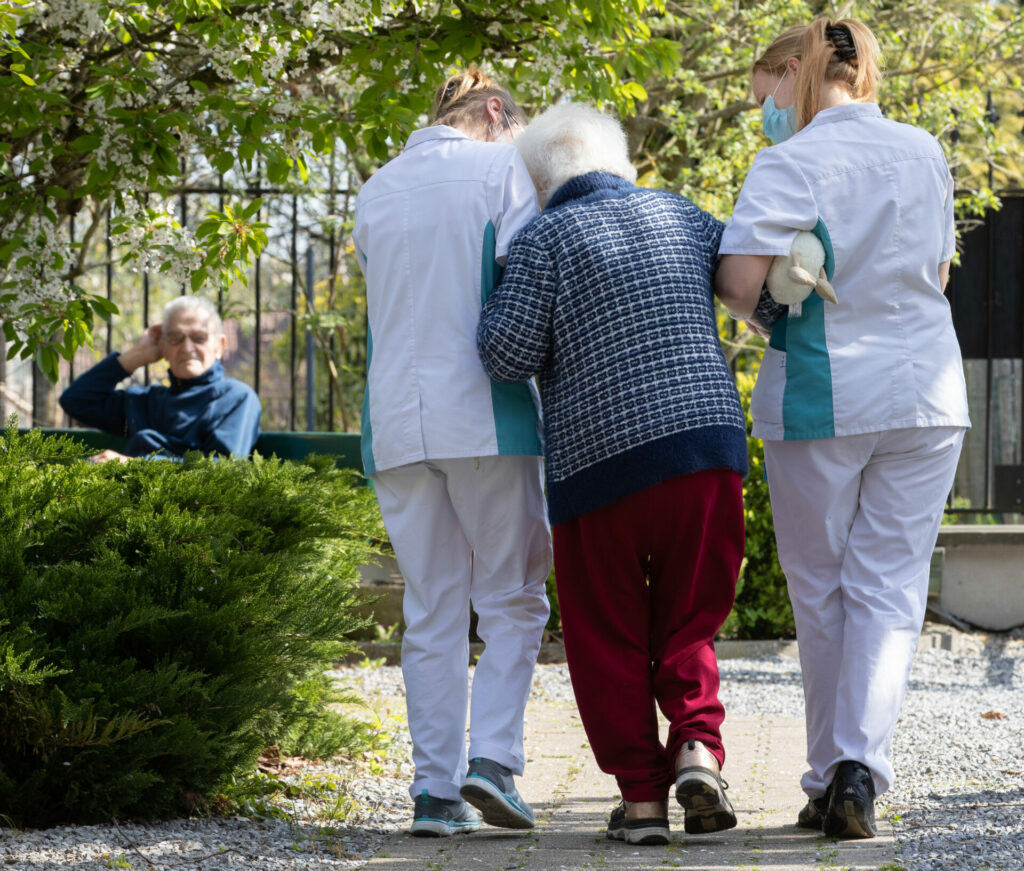Brussels will reform its nursing homes through a cultural change in reception, guidance and care, by opening up the institutions to the surrounding neighbourhoods. The new decision has now been published and will enter into force in September.
The aim of the reform is to transform nursing homes into living environments where residents are valued and participate independently in daily activities, as well as to support staff and enable them to fulfil a meaningful role.
"These new standards are the end result of work that has taken place throughout the legislature. We have committed to a thorough review of the operation of nursing homes, so that they become places where it is pleasant to live and work," said Brussels Minister for Health and Welfare Alain Maron.
"By significantly strengthening the staff around the residents, these new standards will improve life in the nursing homes," he added. "Participation, valuing everyone's capabilities, freedom of choice and opening up to the neighbourhood: these are the principles that form the core of the institutions of tomorrow."
Bringing the city to the residents
In concrete terms, the standards that institutions have to meet have been revised to include the principles derived from the Tubbe and Montessori principles in their guidelines. This aims to upgrade the capacities of residents to stimulate them and develop the internal democracy of the institutions.
For example, a resident can be accompanied to the cafeteria by someone walking next to them instead of taking them in a wheelchair. Thanks to these principles, there is also greater involvement of the residents, such as determining the menus or activities or giving their opinion on the timetables.
Additionally, care homes must open up to the neighbourhood from now on, especially by calling on associations. The goal is to bring the city to the retirement home, or to bring the residents to the city. This can be done, for example, by organising a homework school in the cafeteria, rehearsals for a local dance school or a visit to a whist club.
Related News
- 'Bolt from the blue': Commercial nursing home group Korian put up for sale
- 'Demographic time bomb': Care homes sound alarm over Belgium's ageing population
This new way of working – which some nursing homes have already adopted – is accompanied by a huge reinforcement of the funded staff: more than €18 million per year is being invested to increase the number of physiotherapists, speech therapists, occupational therapists and specialist educators to implement this new culture and relieve the burden on healthcare staff.
From 1 April, a free online platform called 'It takes a village' will also be available so that everyone can rely on coaching, tools and exchanges of good practices. Through this, all stakeholders, staff members, families and citizens who wish to be involved in this new culture of supporting residents will be able to do so.

